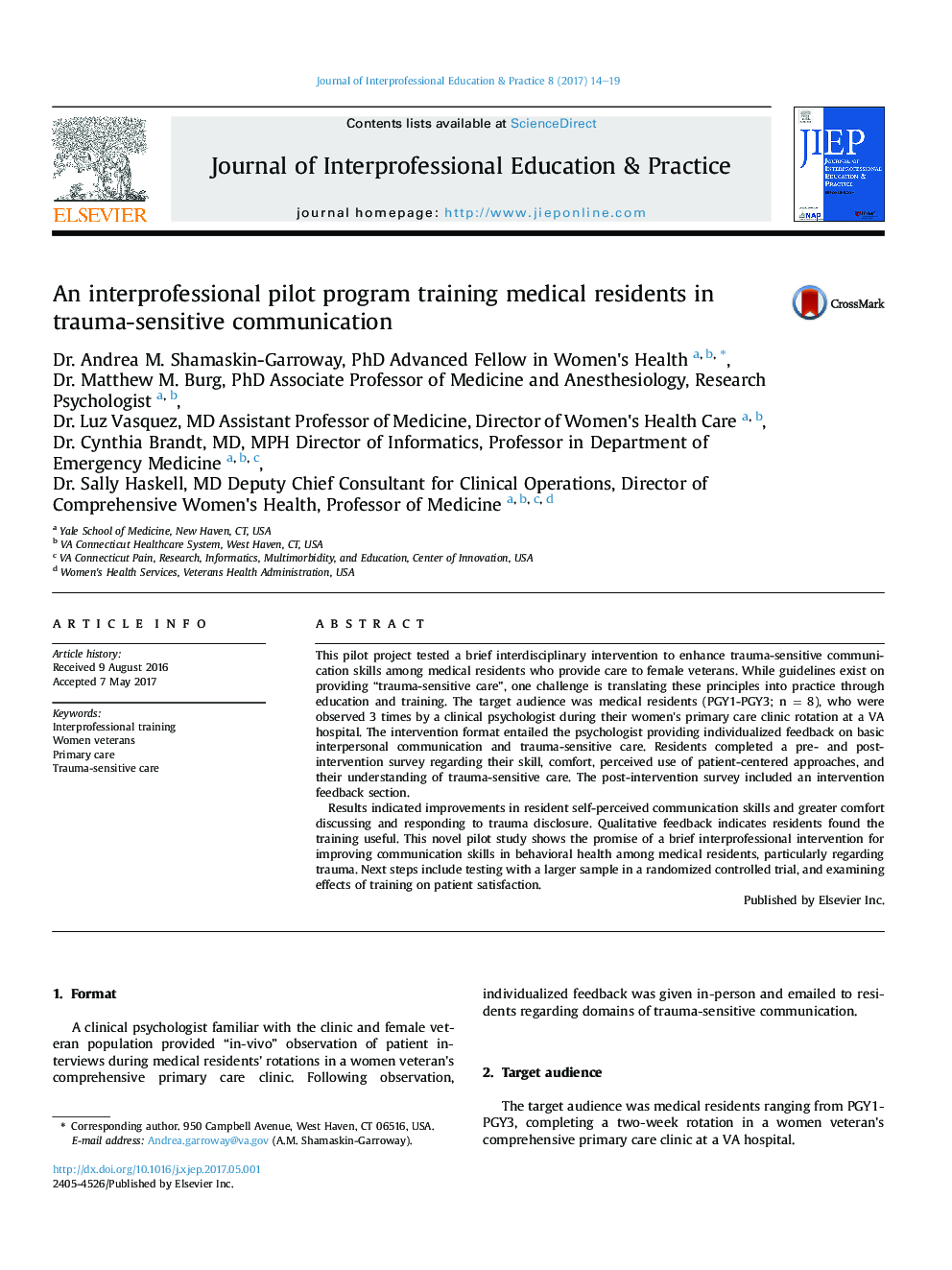| Article ID | Journal | Published Year | Pages | File Type |
|---|---|---|---|---|
| 5569410 | Journal of Interprofessional Education & Practice | 2017 | 6 Pages |
This pilot project tested a brief interdisciplinary intervention to enhance trauma-sensitive communication skills among medical residents who provide care to female veterans. While guidelines exist on providing “trauma-sensitive care”, one challenge is translating these principles into practice through education and training. The target audience was medical residents (PGY1-PGY3; n = 8), who were observed 3 times by a clinical psychologist during their women's primary care clinic rotation at a VA hospital. The intervention format entailed the psychologist providing individualized feedback on basic interpersonal communication and trauma-sensitive care. Residents completed a pre- and post-intervention survey regarding their skill, comfort, perceived use of patient-centered approaches, and their understanding of trauma-sensitive care. The post-intervention survey included an intervention feedback section.Results indicated improvements in resident self-perceived communication skills and greater comfort discussing and responding to trauma disclosure. Qualitative feedback indicates residents found the training useful. This novel pilot study shows the promise of a brief interprofessional intervention for improving communication skills in behavioral health among medical residents, particularly regarding trauma. Next steps include testing with a larger sample in a randomized controlled trial, and examining effects of training on patient satisfaction.
